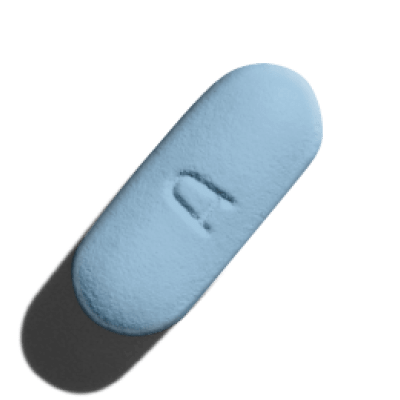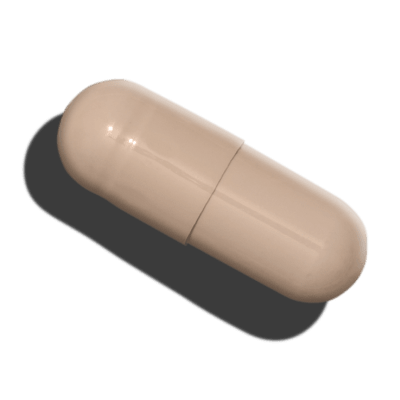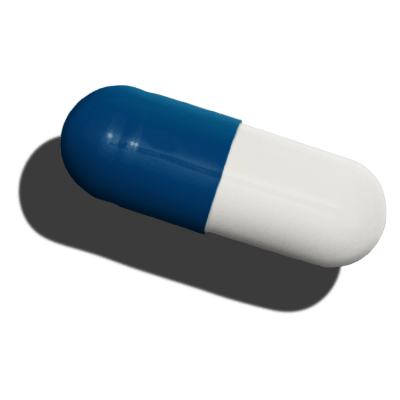Content
Seeking support for your mental health?
Anxiety and Inflammation: What’s the Link?

Anxiety and inflammation might not seem connected at first glance, but scientists have been exploring the relationship between mental health conditions and physiological symptoms like inflammation for years.
As their research continues, a link between inflammation and anxiety might begin to take shape.
You may experience feelings of anxiety or generalized anxiety disorder (GAD) yourself. After all, anxiety is a totally normal response to situations of uncertainty and fears about the future — and most of us experience it somewhat regularly.
But when those fears and uncertainties begin to color our perceptions of the world around us — when anxiety begins to affect how we make choices — then it becomes an anxiety disorder.
Could it also cause inflammation? Or conversely, could anxiety be the result of inflammation?
The science of anxiety and inflammation is new, but some important studies create a framework for how these two conditions might overlap — and how one might potentially cause the other.
Before we explain that cause-and-effect relationship, though, let’s look at those studies and break down where inflammation and anxiety cross paths.
Content
Can stress and anxiety cause inflammation? Maybe.
Anxiety disorders can be serious, with symptoms of anxiety affecting your sleep, cognitive abilities and quality of life.
Could something like inflammation really be responsible for that knot you feel in your chest about your performance at work or meeting new people? It’s possible.
Mental health conditions like anxiety may feel like a problem in your head, but in reality, anxiety disorders affect a number of organs and systems in your body.
We’re not just talking about the shakes and sweats that may come from panic — anxiety disorders are associated with cardiovascular disease and metabolic conditions. But when it comes to inflammation, things get a little more opaque.
You may not see the link between your swollen, post-injury ankle and your long-term mental health. And yet when we look more closely at what’s going on, there are many connections between inflammation and mental health.
Those health issues might start with your immune system.
Studies have looked at the connections between the inflammatory response — what happens to your tissues when they experience trauma, heat, bacterial infection, toxins or other external stimuli — and your brain’s ability to regulate mood. It has to do with inflammatory cytokines, which are basically the messengers of the immune system.
So where does this leave anxiety and inflammation? Well, studies have shown that elevated inflammation is present in anxiety disorders in men, and immune dysregulation has been noted in older individuals with anxiety disorders.
Now let’s talk cause and effect.
Let’s take that sprained ankle as an example. When you sprain it, your immune system releases cytokines in an inflammatory response. While they signal your body to begin the necessary repairs to the damage, they also tell your brain that your ankle has been injured.
These cytokine communications let you know, for instance, not to put any weight on your poor swollen ankle for a couple of days. They may also tell your brain, “Hey, those stairs are dangerous.”
In other words, inflammatory cytokines can begin to create a sort of paper trail of weariness, essentially increasing your threat-assessment sensitivity. A 2018 study found that when this happens, the result is a net reduction in your motor activity and motivation, meaning you do less and move less.
Over time, this can create the circumstances for behavioral changes. This means that if the communications are clear or frequent enough, it can lead to alterations in your behavior. And these alterations aren’t always for the better.
But changes in behavior don’t necessarily point to anxiety. Connecting anxiety to an inflammatory response is one thing, but defining a cause-and-effect relationship is a different task — one that scientists are still trying to figure out.
As recently as 2013, studies have acknowledged that the role of inflammation in anxiety isn’t fully understood and hasn’t been adequately studied.
The best example we could find of research suggesting that inflammation is a cause of anxiety came from a 2009 study of just 16 men. It found evidence of “inflammation-based mood deterioration” by examining cytokines. Though more questions remain, the researchers believe it demonstrates that inflammation can cause mood changes, like an increase in depression (anxiety wasn’t examined).
However, some researchers have been going forward in examining the chicken-and-egg relationship between stress and inflammation for answers without determining which came first.
A 2018 paper used imaging to study the brains of patients with anxiety symptoms and psychological stress and found particular areas suffering from inflammation. They suspect that the relationship may mean that inflammation is essentially causing a rewiring of the brain — toward dysfunction.
The study in question didn’t make any assertions about the role of inflammation or anxiety in the other’s existence. But it did emphasize that further imaging could yield answers that might eventually lead to more novel treatments for anxiety when inflammation is present.
Can Anxiety Cause Inflammation?
So what if the egg comes first instead? What if anxiety or severe psychological stress is the cause of inflammation?
There are limits on how that question can be answered without adequate studies, and to date, the research hasn’t delivered those kinds of results.
Studies have previously demonstrated that artificially induced stress does cause an inflammatory response, which would, in turn, indicate that anxiety induced by chronic stress could result in inflammation. But more research is needed to replicate this and other experiments to really have an answer.
(By the way, if you’re curious about the difference between anxiety and stress, check out our blog).
One group of researchers who published a review in 2017 believe that the stress response is ultimately responsible for triggering the inflammatory or immune activity in the first place. This would suggest that if you trace the anxiety-inflammation link back to its true origin, anxiety (or at least a stress response) might have come first.
At the moment, there’s evidence for both sides of this either-or, which might suggest that inflammation and anxiety are even more closely linked than we thought.
Still, more studies will have to be conducted for us to have a better answer than “maybe.”
Of course, the most obvious question you might have is whether treating anxiety makes chronic inflammation go away or if treating inflammation makes anxiety go away — and there’s not a lot of information to offer here.
For instance, that 2013 study we mentioned earlier suggested that certain instances of anxiety disorder associated with immune dysregulation might benefit from other treatments. This includes anti-inflammatory medications and lifestyle interventions, like exercise and diet changes.
But suggesting these things is far from writing out a dosage for something like prescription-strength ibuprofen — or telling you to take aspirin every day. In fact, studies that looked at ibuprofen as a solution for inflammation-related mental health are far from convincing (yet).
So far, ibuprofen has demonstrated some effectiveness in reducing symptoms of depression in people with a variety of inflammatory conditions, including osteoarthritis and postpartum depression. And it’s demonstrated the potential to reduce suicidal ideation. Ibuprofen for depression may be part of a plan to help manage physical pain.
But these were fairly small studies, and they examined depression management, not the management of anxiety.
For the time being, it’s best to treat inflammation and anxiety separately. If a healthcare professional sees both are present, they’ll treat both accordingly.
Neither mild nor severe anxiety is a curable condition, but effective treatments for anxiety are commonly accepted and recommended.
We suggest checking out our blog for more information. Learn about how therapy for anxiety works or explore the different medications for anxiety.
talk to a psychiatry provider. it’s never been easier
Anxiety and inflammation can definitely be related and concurrent. However, treating anxiety by fighting inflammation is far from a winning strategy unless it’s under the advice of a healthcare professional.
Yes, one day, we may take ibuprofen to reduce anxiety, but that day isn’t certain, and it’s likely years (if not decades) in the future.
In the end, anxiety has many potential causes and risk factors. Even if you’re certain that an inflammatory response related to a condition or injury just has to be the culprit, the right way to go about treatment is to bring these thoughts and concerns to the attention of a professional.
A healthcare provider can help you identify other potential causes of anxiety. They can also suggest more proven, medically sound treatment options like medication, therapy and lifestyle changes. They may help you manage inflammation, as well, but that’s a conversation for the two of you to have.
If you’ve been struggling with anxiety for a while, inflammation may be part of the answer. But until you tackle the question with a professional, you’re not going to know the full picture.
Ready to talk to someone? Our healthcare professionals are available through our mental health resources to answer questions about your anxiety and inflammation symptoms.
If you’re ready to approach your anxiety from a mental health standpoint, consider our convenient, remote and affordable online therapy platform.
7 Sources
- Vogelzangs, N., Beekman, A., de Jonge, P. et al. Anxiety disorders and inflammation in a large adult cohort. Transl Psychiatry 3, e249 (2013). https://www.nature.com/articles/tp201327.
- Felger J. C. (2018). Imaging the Role of Inflammation in Mood and Anxiety-related Disorders. Current neuropharmacology, 16(5), 533–558. https://www.ncbi.nlm.nih.gov/pmc/articles/PMC5997866/.
- Chand SP, Marwaha R. Anxiety. [Updated 2022 May 8]. In: StatPearls [Internet]. Treasure Island (FL): StatPearls Publishing; 2022 Jan-. Available from: https://www.ncbi.nlm.nih.gov/books/NBK470361
- Iyengar, R. L., Gandhi, S., Aneja, A., Thorpe, K., Razzouk, L., Greenberg, J., Mosovich, S., & Farkouh, M. E. (2013). NSAIDs are associated with lower depression scores in patients with osteoarthritis. The American journal of medicine, 126(11), 1017.e11–1017.e1.017E18. https://pubmed.ncbi.nlm.nih.gov/23993259/.
- Lehrer, S., & Rheinstein, P. H. (2019). Nonsteroidal anti-inflammatory drugs (NSAIDs) reduce suicidal ideation and depression. Discovery medicine, 28(154), 205–212. https://pubmed.ncbi.nlm.nih.gov/31928628/.
- Kapulsky, L., Christos, P., Ilagan, J., & Kocsis, J. (2021). The Effects of Ibuprofen Consumption on the Incidence of Postpartum Depression. Clinical neuropharmacology, 44(4), 117–122. https://pubmed.ncbi.nlm.nih.gov/33811197/.
- Harrison, N. A., Brydon, L., Walker, C., Gray, M. A., Steptoe, A., & Critchley, H. D. (2009). Inflammation causes mood changes through alterations in subgenual cingulate activity and mesolimbic connectivity. Biological psychiatry, 66(5), 407–414. https://pubmed.ncbi.nlm.nih.gov/19423079/.
Editorial Standards
Hims & Hers has strict sourcing guidelines to ensure our content is accurate and current. We rely on peer-reviewed studies, academic research institutions, and medical associations. We strive to use primary sources and refrain from using tertiary references. See a mistake? Let us know at blog@forhims.com!
This article is for informational purposes only and does not constitute medical advice. The information contained herein is not a substitute for and should never be relied upon for professional medical advice. Always talk to your doctor about the risks and benefits of any treatment. Learn more about our editorial standards here.
Kristin Hall, FNP
Kristin Hall is a board-certified Family Nurse Practitioner with decades of experience in clinical practice and leadership.
She has an extensive background in Family Medicine as both a front-line healthcare provider and clinical leader through her work as a primary care provider, retail health clinician and as Principal Investigator with the NIH.
Certified through the American Nurses Credentialing Center, she brings her expertise in Family Medicine into your home by helping people improve their health and actively participate in their own healthcare.
Kristin is a St. Louis native and earned her master’s degree in Nursing from St. Louis University, and is also a member of the American Academy of Nurse Practitioners. You can find Kristin on LinkedIn for more information.




